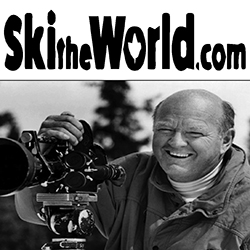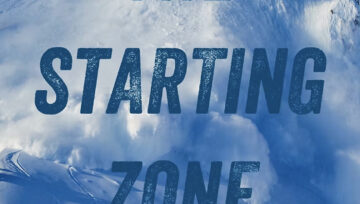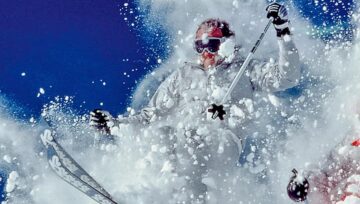Backstory: ‘The Freedom Chair’
The story of Josh Dueck and the film that just won ‘Best Film-Mountain Sports’ at the Banff festival.
Five hundred dollars. That was the agreement. “I told him, if you ever make it big, write a $500 check to spinal cord research,” says Mike Douglas.
Him, in this case, refers to Josh Dueck, a hard-charging skier that is the subject of The Freedom Chair, one of three Salomon Freeski TV extended webisodes that Switchback Entertainment is submitting to film festivals this fall. The 15-minute short chronicles the moving story of the 30-year-old Dueck. In 2004, the Vernon, B.C., resident was the head coach of the Silver Star Freestyle Club, coaching the likes of T.J. Schiller, Justin Dorey, Josh Bibby, and Riley Leboe. During training for the Canadian Junior Nationals, Dueck tested one of the jumps and overshot the landing while attempting a superman front flip. Upon impact, he dislocated his back and severed his spinal cord, cutting the nerve endings. The former B.C. Freestyle Team member became a paraplegic, unable to feel and move below his waist.
Shortly thereafter, Dueck learned how to operate a mono-ski, with the goal in mind of making the Canadian Para-Alpine Team to qualify for the 2010 Vancouver Paralympic Games. In turn, he approached Douglas on Blackcomb’s Hortsman Glacier, seeking help in the form of a business plan. Douglas provided Dueck with valuable industry insight, refusing payment and forming the $500 pact instead.
Five years later, from freestyler to alpine racer, Dueck landed on the podium at the 2010 Paralympic Games, earning a silver medal in slalom. At the 2011 Winter X Games, Dueck won gold in Mono Skier X. Over New Year’s, Douglas invited him on a cat-ski trip to Chatter Creek, B.C., with Dueck’s good friend and former B.C. Freestyle Teammate Mark Abma, where he boosted pillows and cliffs, and skied deep pow rather than icy race courses.
“When we were done with the shoot,” says Douglas, “I thought to myself, ‘we can’t just do a seven-minute Freeski TV webisode on this. This story is too powerful.’” Now, Douglas claims the emotional yet compelling film short “is the best I have ever worked on.”
As for that $500? Dueck paid that and more. As a motivational speaker, he plans on playing the video at presentations to fundraise for charities. “It’s a catalyst for change,” says Dueck in regards to the film. “It tells my story so well that I can stop telling my story.”
By John Stifter











Comments